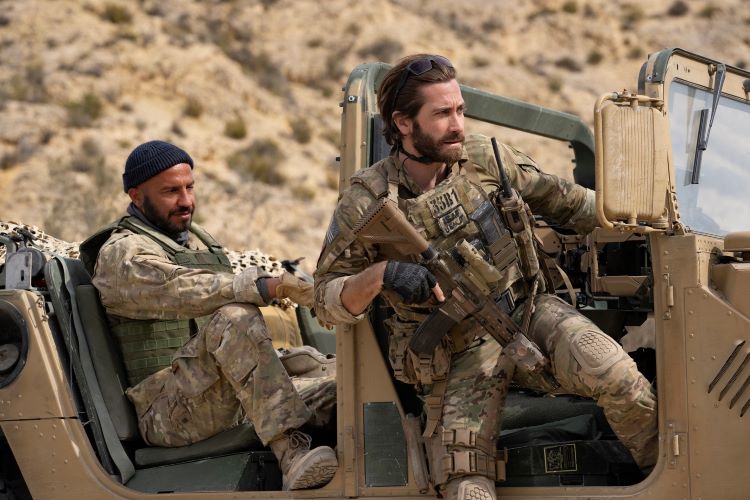
Guy Ritchie’s The Covenant delivers the action and suspense expected from the war movie genre and from Ritchie, yet ventures beyond expectations to create a moving drama. Set against the backdrop of the US’s 20-year war in Afghanistan, the film sets aside the many larger questions regarding the war to focus on the relationship between US troops and the Afghani interpreters who worked with them. Fighting a war of terrorism, where attacks can take place anywhere at any time, in a country where they do not understand the local languages, the American soldiers were incredibly vulnerable and had to rely on their local allies to interpret for them, as Ritchie makes abundantly clear in the film’s first, tense, scene. Even more vulnerable were the interpreters, who were instantly marked as targets for the Taliban. Taking immense risks – not only to themselves, but endangering their families as well, these interpreters were promised visas to the US, as protection from the revenge of the Taliban. It’s a promise that has yet to be made good for the many interpreters left behind in Afghanistan. Central to the film are the strong performances by its two leads: Jake Gyllenhaal as Sgt. John Kinley, and Dar Salim as his interpreter Ahmed.
Kinley and the men under his command are tasked with finding weapons caches and IEDs (improvised explosive devices), a dangerous endeavor that relies on the intelligence they receive, which, in Kinley’s first forays, seems to be lacking. Having lost their interpreter as well as one of their own men in a previous encounter, Kinley decides to gamble on Ahmed, despite the friction in their initial conversation. Dar Salim is an impressive presence on screen, as he first walks towards Kinley’s jeep his gait and stance communicate independence, confidence, and power. A power that Kinley, as his commander, insists on regulating and restraining. Yet although in his interaction with Ahmed, Kinley goes very much by-the-book, his conversations with his own superior, Col. Vokes (Jonny Lee Miller) reflect his own frustration with a system that so far, has led him to futile searches and dead ends.
As Ahmed joins the team on their missions, the significance of his role looms large. He does more than translate the local language, he understands the local culture, he knows the land, he knows the people and knows how to approach them. On their part, Kinley and his men must trust Ahmed with their lives. As he says in the film, Ahmed is not a translator, he is an interpreter. Words and word choice matter in this film, and it is interesting to note that although in development the film was titled “The Interpreter”, Ritchie eventually went with Guy Ritchie’s The Covenant. The lengthy title differentiates this film from the 2006 horror film, and also emphasizes Ritchie’s vision, and the weight of the word “covenant”. The relationship between Kinley and Ahmed and its development is not a narrative of war comrades, or a bond of friendship. It is something deeper, beyond feelings, there is a moral urgency to this connection.
As the camera pans over the vast, rough, landscape, there is a sense of the enormity and impossibility of the task. This was not a war that was ever going to be won. Those viewers looking for action will not be disappointed, there are several very exciting and suspenseful scenes, and the camera in its motion evokes the immediacy and tension of the moment. At another crucial point in the narrative, a closeup on Gyllenhaal is relentless in its intensity, emphasizing the hold of the moral obligation that compels him.
Guy Ritchie’s The Covenant
US/2023/123 min/English
Director: Guy Ritchie; Screenplay: Guy Ritchie, Ivan Atkinson, Marn Davies; Cinematography: Ed Wild; Editor: James Herbert; Music: Christopher Benstead; Cast: Jake Gyllenhaal, Dar Salim, Antony Starr, Alexander Ludwig, Bobby Schofield, Emily Beecham, Jonny Lee Miller





